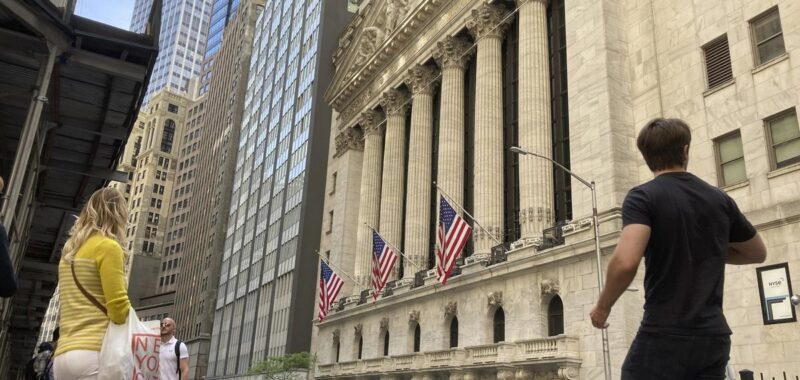Fear, long absent in financial markets as investors bet on a “soft landing” for the U.S. economy, is back in the air on Wall Street.
Stocks opened sharply lower Friday after new government data showed a steep decline in hiring in July, spurring concerns that economic activity is slowing faster than economists expected.
Two hours into the session, the blue-chip Dow Jones Industrial Average was down more than 800 points, or 2%, to 39,543. The broader S&P 500 sank 2.4%, while the tech-heavy Nasdaq Composite lost nearly 3%, fueled by disappointing quarterly earnings from bellwethers such as Amazon and Intel.
Market analyst Adam Crisafulli of Vital Knowledge said the weak employment numbers will heighten fears the economy is losing steam. “This labor report fell short on pretty much every single metric,” he said in a note to investors.
Although stocks have hit record highs this year, propelled in part by excitement over artificial intelligence companies, investors have pulled back in recent weeks. Some analysts think the Federal Reserve has waited too long to lower interest rates, raising the risk of a hard landing for the economy, or even a recession.
Economists also said signs that the job market is faltering makes it all but certain that the Fed will lower its benchmark rate in September in a move to ease borrowing costs and keep the economy from stalling.
The central bank could cut by as much as 0.5 percentage points, or even look to dial back rates before its next policy meeting on September 17-18, according to investment advisory firm Capital Economics. Citing the weakening labor market, Goldman Sachs analysts are now penciling in three quarter-point cuts by year-end, starting in September.
Despite the downshift in hiring, some analysts noted that the overall economy remains strong, pointing to an ongoing decline in inflation, healthy consumer spending and solid wage growth.
And while the nation’s unemployment rate has risen to 4.3%, up from 3.7% in January, that is largely because more people are looking for work rather than a spike in layoffs.
“Equities selling off should be seen as a normal reaction, especially considering the high valuations in many pockets of the market,” Lara Castleton, U.S. head of portfolio construction and strategy at Janus Henderson Investors, said of the July job numbers. “It’s a good reminder for investors to focus on the earnings of companies going forward.”
Until mid-July, U.S. stocks had enjoyed a run of more than 350 straight trading sessions without a drop of more than 2%, the longest stretch in 17 years, according to investment bank UBS.

